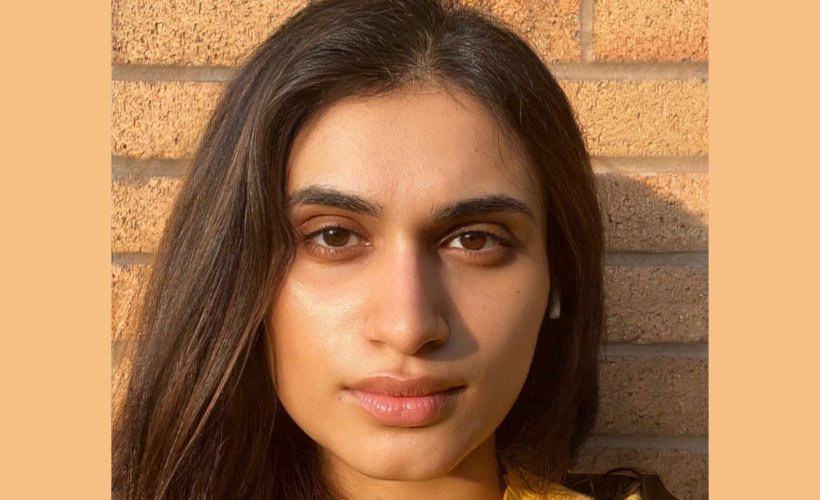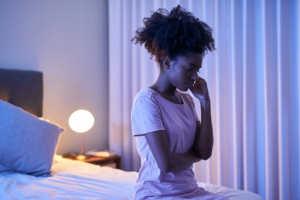
The pandemic has caused mental imbalances like sleep disorders, explains the writer

The Covid-19 pandemic is continually evolving, with localised lockdowns still in place in most parts of the world and populations making steady progress in returning to their everyday routines. With a global outbreak comes various biological, cognitive, and socio-cultural factors that significantly affect mental and physical health. According to a recent study, sleep neurologists reported a rise in patients suffering from “Covid-Somnia.” This condition shares a strong correlation with insomnia. Primary causes include disturbances in the sleep cycles of people whose lives have been interrupted by the fear of the unknown, anxiety, and social isolation during such challenging and uncertain times.1
Since December 2019, increasing healthcare risks have forced people to work from home and minimise social interaction with family and friends in stressful circumstances. These drastic lifestyle changes have had a considerable impact on night-hour sleep patterns and daily functioning, affecting mental health more prominently. Sleep is vital in regulating emotions, and sleep pressure (a force that holds circadian rhythms) is affected by external factors like a bright light source. Prolonged exposure to light affects melatonin release (a hormone that regulates deep sleep levels and stabilises the circadian rhythm).2 In addition to this factor, activity levels and meal-times might also affect sleep. For instance: low activity levels caused by depression or isolation might harm rest; on the flip side, high activity levels due to burnouts and anxiety caused by the stress of working in not very conducive environments.3
Researchers have observed a relatively strong co-relation between the effects of Covid-Somnia and studies investigating isolation on an individual’s physical and psychological well-being. A 2008 isolation study conducted during an epidemic concluded that young female participants predicted the possibility of quarantine having a negative psychological impact.4 In another study, a person with a history of anxiety reported sleep disturbances, anger, and frustration after 4-6 months of self-isolation.5
Pre-existing insomnia might also be a significant trigger for Covid-Somnia and PTSD (Post-Traumatic Stress Disorder) when exposed to a significant stressor. Age and gender are associated with the gradients of elevation these disorders take. For example, a recent study with participants aged 35 years and younger affected by insomnia reported an increase in levels of PTSD, especially if they were keeping themselves abreast of Covid-19 news updates as compared to those who were older and did not watch news related to the outbreak.6
Individuals can adopt several coping mechanisms to deal effectively with Covid-Somnia and minimize its effects on well-being: Limit exposure to news about the pandemic, primarily if it is not related to one’s work situation. Try receiving as much natural daylight as possible. If you cannot, try switching on bright lights at daytime and dim lights at night. This routine might help regulate sleep cycles. Indulge in activities you find relaxing and enjoy performing like reading a book, meditating, and practicing mindfulness. Keep in touch with friends and family. Consult a professional if you feel overwhelmed.[1]
In conclusion, practicing positive ways to cope with these challenging times can help individuals foster positive physical and mental well-being.
1. Neurology Today. (2020). Sleep Neurologists Call It ‘Covid-Somnia’- Increased Sleep Disturbances Linked to the Pandemic. Retrieved from https://journals.lww.com/neurotodayonline/Fulltext/2020/07090/
2. Fuller, P. M., Gooley, J. J., Clifford, B. S. (2006). Neurobiology of the sleep-wake cycle: sleep architecture, circadian regulation, and regulatory feedback. J.Biol. Rhythms, 21(6), 482-493. doi: 10.1177/0748730406294627
3. Altena, E., Baglioni, C., Espie, C. A., Ellis, J., Gavriloff, D., Holzinger, B., …Riemann, D. (2020). Dealing with sleep problems during home confinement due to the COVID-19 outbreak: Practical recommendations from a task force of the European CBT-I Academy. Journal of Sleep Research, 29(4). doi: https://doi.org/10.1111/jsr.13052
4. Taylor, M. R., Agho, K. E., Stevens, G. J., & Raphael, B. (2008). Factors influencing psychological distress during a disease epidemic: Data from Australia’s first outbreak of equine influenza. BMC Public Health,8, 347.
5. Jeong, H., Yim, H. W., Song, Y. J., Ki, M., Min, J. A., Cho, J., & Chae, J. H. (2016). Mental health status of people isolated due to Middle East Respiratory Syndrome. Epidemiology and Health, 38. doi: 10.4178/epih.e2016048
6. Huang, Y., & Zhao, N. (2020). Generalized anxiety disorder, depressive symptoms and sleep quality during the COVID-19 epidemic in China: A web-based cross-sectional survey.med Rxiv.





